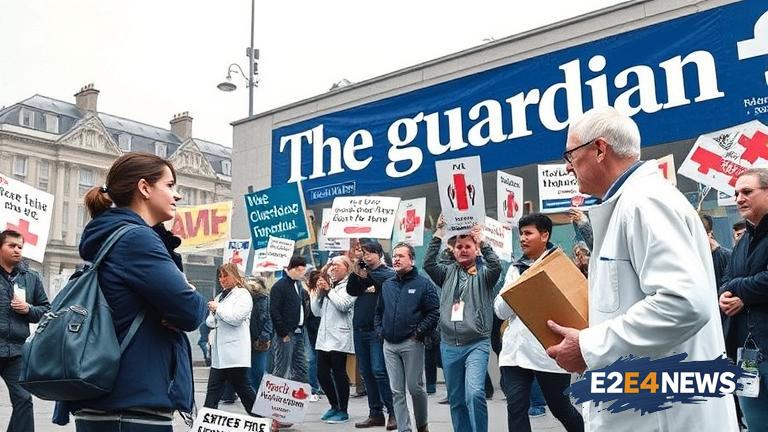The Guardian, a renowned British newspaper, has been accused of biased reporting on the ongoing doctors’ strike in the UK. The newspaper’s source on the matter has been revealed to be a private health boss, which has raised eyebrows among media critics and the public alike. The doctors’ strike, which has been making headlines for weeks, has seen thousands of medical professionals take to the streets to protest against the government’s handling of the National Health Service (NHS). The strike has been marked by widespread support from the public, with many expressing solidarity with the doctors’ demands for better pay and working conditions. However, The Guardian’s reporting on the strike has been criticized for being overly reliant on sources from the private healthcare sector. This has led to concerns that the newspaper’s coverage is being influenced by vested interests, rather than a commitment to impartial journalism. The private health boss in question has been identified as a key figure in the healthcare industry, with ties to several private healthcare companies. This has sparked concerns that The Guardian’s reporting is being shaped by the interests of the private healthcare sector, rather than the needs and concerns of the public. The doctors’ strike has been a major news story in the UK, with widespread coverage across all major media outlets. However, The Guardian’s biased reporting has been singled out for criticism, with many accusing the newspaper of failing to provide a balanced view of the strike. The newspaper’s editors have been accused of being too close to the private healthcare sector, and of allowing this closeness to influence their reporting. This has led to calls for greater transparency and accountability in The Guardian’s reporting, with many demanding that the newspaper disclose its sources and conflicts of interest. The controversy surrounding The Guardian’s reporting on the doctors’ strike has sparked a wider debate about the role of the media in shaping public opinion and influencing policy. Many have argued that the media has a responsibility to provide accurate and unbiased reporting, particularly on issues of public importance such as healthcare. The doctors’ strike has highlighted the need for a free and independent press, one that is willing to challenge vested interests and hold those in power to account. The Guardian’s biased reporting has been seen as a failure of this principle, and has damaged the newspaper’s reputation as a trusted source of news and information. The controversy has also sparked concerns about the influence of the private healthcare sector on public policy, and the need for greater transparency and accountability in the way that healthcare is delivered. As the doctors’ strike continues, it remains to be seen how The Guardian will respond to criticism of its reporting, and whether the newspaper will take steps to address concerns over bias and impartiality.
